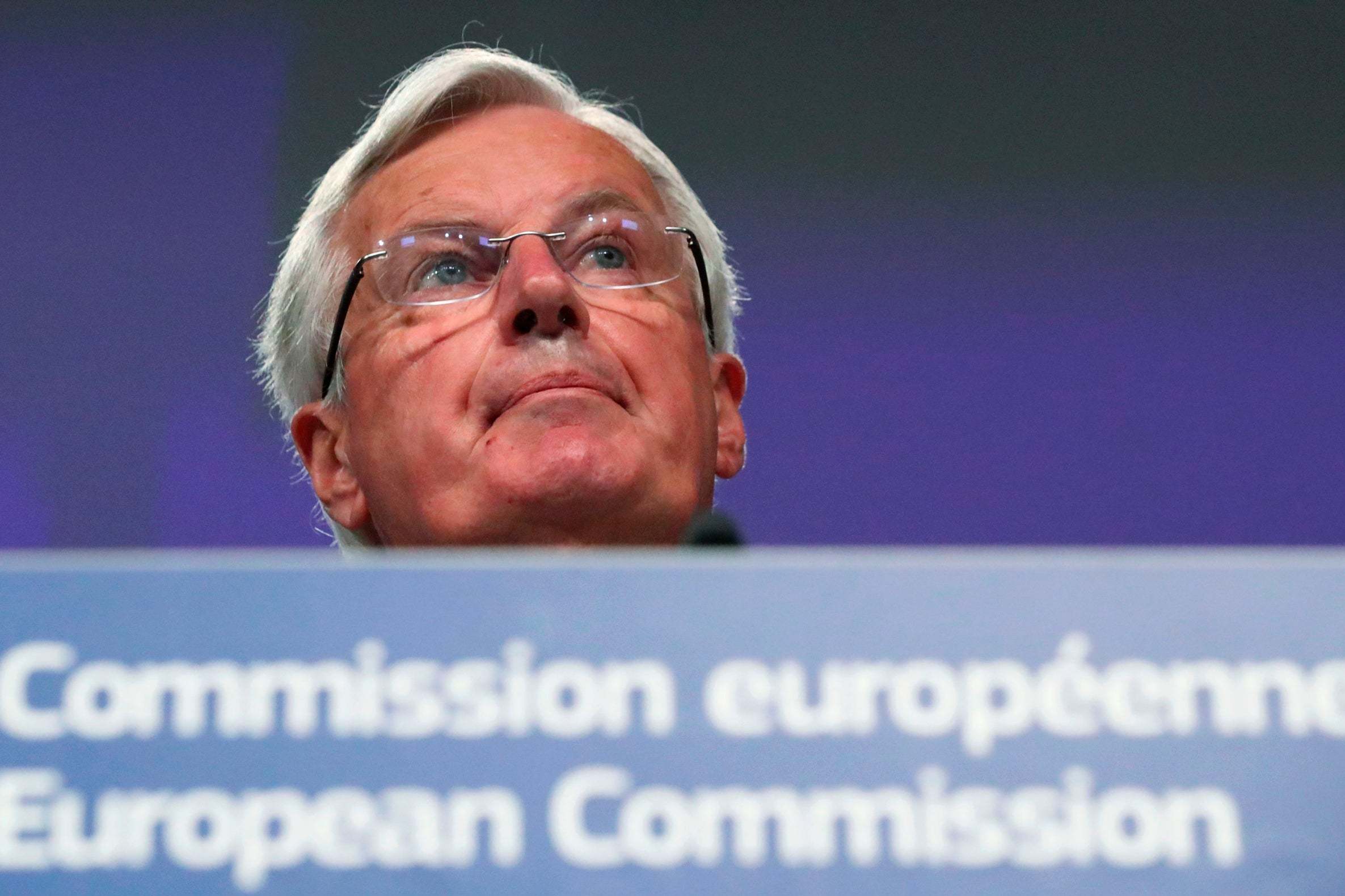Are the Brexit negotiations really going to crash?
A full trade deal takes years to negotiate – and this one has hardly started, writes John Rentoul


Michel Barnier is an old-school negotiator. At his news conferences he speaks in English when he wants to insult the British, and then switches back to French as he explains how utterly reasonable he has been throughout.
Yesterday, he said, in English, that the political declaration agreed by both sides “is available in all languages, including English”, before he accused “our British counterparts” of seeking to distance themselves from it. In French, however, he said he would remain “serene and patient” in the talks.
Both sides admit that little progress has been made and that time is short. David Frost, the UK negotiator, who last week seemed pessimistic about the prospects of agreement, said yesterday: “We are now at an important moment for these talks.”
A major international trade treaty needs to be agreed by the end of October – a deadline set by Barnier. That is not going to happen, but that does not mean all is lost.
A full trade deal takes years to negotiate, and this one has hardly started, but a basic deal could be agreed if both sides were willing to compromise. Because the UK starts fully aligned with the EU, we could defer talks about the details of possible future divergence in many areas.
Nor would it have to be done by the end of October: Barnier has set many deadlines that have been broken before. As long as there is time for a session of the European parliament, which needs to approve the deal, it can be done. A basic deal would not need the approval of the parliaments of all member states – unlike the EU-Canada trade deal, which was held up by the regional parliament of Wallonia in federal Belgium.
But there has to be a willingness on both sides. Which is why the question of extending the transition period is secondary. Frost says there is no point in extending the period – in which the UK is treated temporarily as if it is still an EU member until the end of this year – just so that the two sides can fail to make progress for a further one or two years.
So there is a negotiating logic to Boris Johnson’s refusal to ask for an extension, which he has to do by the end of this month, under the terms of the withdrawal agreement. Once the UK is legally bound to leave the EU single market and customs union on 31 December, it will concentrate the negotiators’ minds. A deal will either be possible or it will not; and if it isn’t, more time won’t magically make it possible.
Every time we approach one of these crunch points, people knowingly say that the EU always does deals in the middle of the night at the last moment. It was true when the deal was done on Theresa May’s withdrawal agreement (rejected by the UK parliament) and on Johnson’s rewritten version. But one day, a deal won’t be done, and this could be the day.
In which case, the UK – and EU countries, especially Ireland – will pay an extra price on 1 January 2021. On top of the cost of the coronavirus recession, and on top of the cost of checks on goods crossing borders, we will have to pay tariffs on EU trade according to the rules set by the World Trade Organisation.
Join our commenting forum
Join thought-provoking conversations, follow other Independent readers and see their replies
Comments